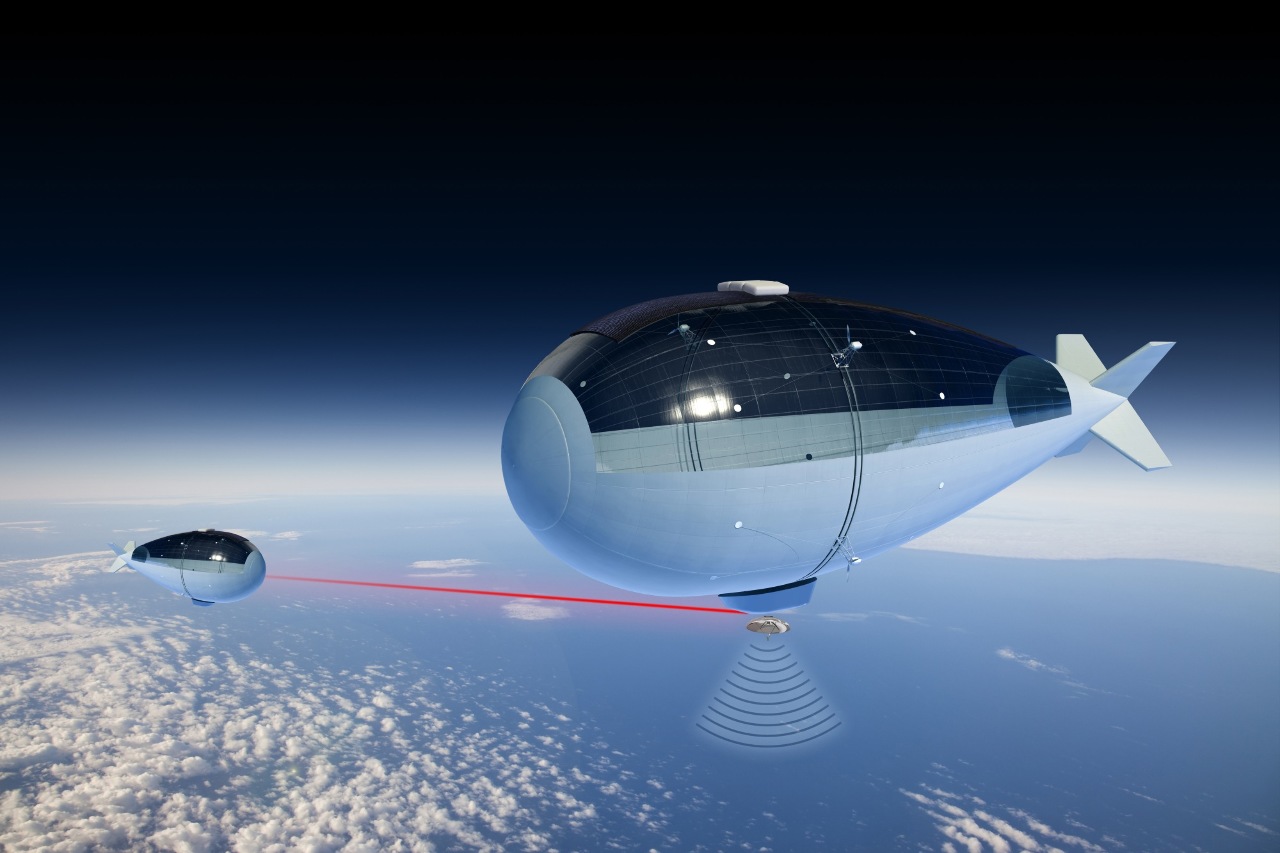Thales Alenia Space has officially launched its Stratobus research & development project. Stratobus is an autonomous stratospheric airship that recently obtained €17m in funding under the French government’s “investment in the future” programme. These funds cover a 24-month development phase for key enabling technologies, culminating in the construction of a demonstrator scheduled for launch in 2018. Additional funding of about €3m is expected from four French regions.
Thales Alenia Space and its French partners in the programme have signed initial contracts with state investment bank Bpifrance today. The company CNIM (Construction Navale Industrielle de la Méditerranée) will build the structure and associated equipment, the ring and the nacelle; while Solutions F will provide the electric propulsion system; Airstar Aerospace, the fully-dressed envelope ; and Tronico-Alcen, the energy conditioning system. In addition to these French partners, Cmr-Prototec of Norway will supply the energy storage system and MMIST of Canada, the parachutes. Thales Alenia Space is the lead company, and also in charge of systems integration, avionics, solar arrays and certification.
Stratobus will be positioned at an altitude of about 20km, in the lower layer of the stratosphere, which offers sufficient density to provide lift for the balloon. Winds at this altitude are moderate and stable throughout the entire zone between the tropics, at not more than 90km/h (55mph), allowing the airship to remain stationary using its electric propulsion system. Stratobus will carry payloads to perform missions such as the surveillance of borders or high-value sites on land or at sea, security, environmental monitoring and telecommunications.
Thales Alenia Space estimates the market for high-altitude pseudo satellites (HAPS) at one billion dollars from now to 2020. It notes that market forecasts indicate a return on investment in less than three years following commercialisation.

